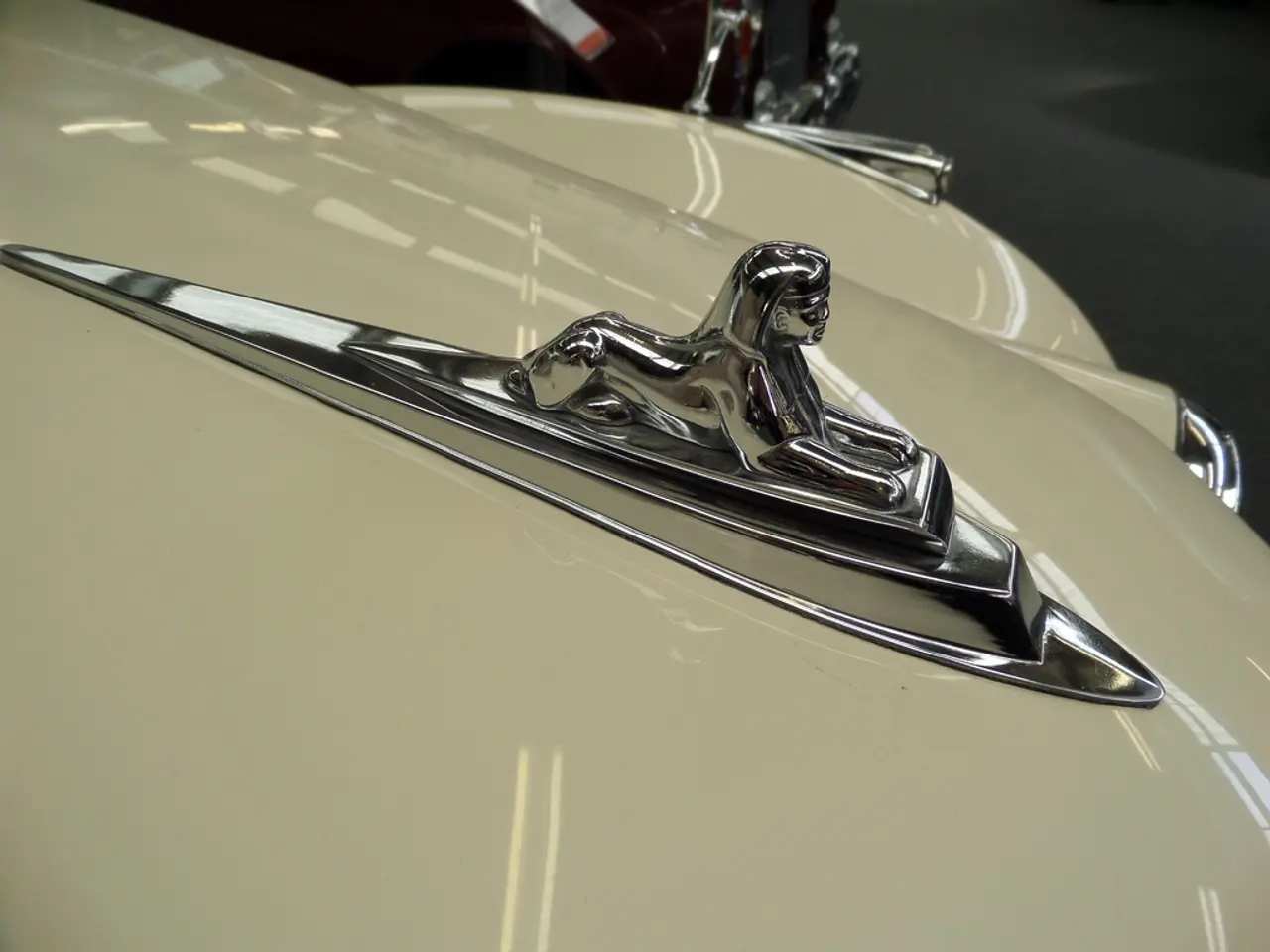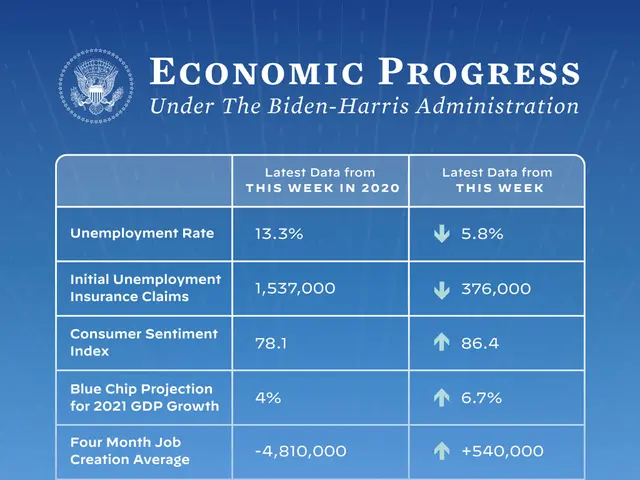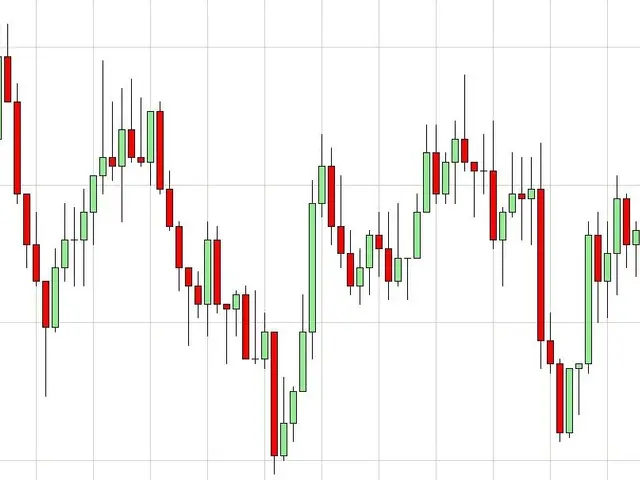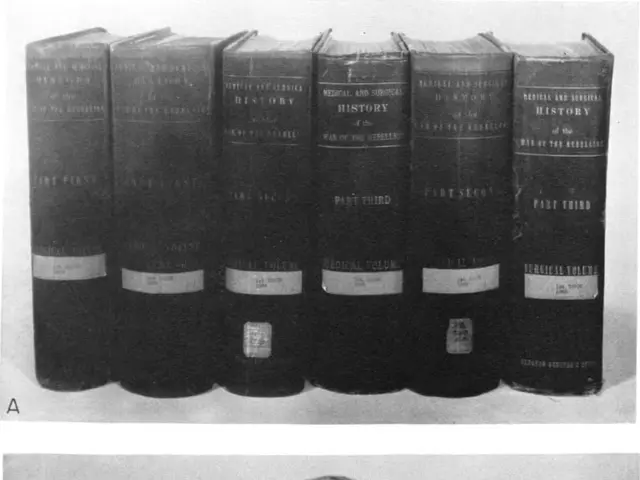Customer Trust in Brands Nearing Pre-Pandemic Rates
In the ever-evolving world of automotive sales, U.S. brand loyalty for new-vehicle purchases is on the rise, approaching pre-pandemic levels. According to a recent analysis by LexisNexis Risk Solutions, approximately 53.3% of new buyers chose the same brand they previously owned—a figure not seen since 2019's 54.3%[1].
However, brand loyalty varies significantly among manufacturers, with factors such as tariffs, geopolitical tensions, and the electric vehicle (EV) transition playing a significant role.
Tariffs and geopolitical tensions have caused price increases and reduced imports, particularly for vehicles from Japan and Europe. As a result, manufacturers like Mitsubishi have hiked prices, and overall U.S. car shipments have dropped over 70% in some months[4]. These factors contribute to fluctuating consumer loyalty and affordability challenges, pressuring buyers to reconsider brands due to rising costs and limited incentives[1][4].
The electric vehicle transition and brand loyalty shifts have also been a critical factor. Tesla, once a leader in U.S. EV brand loyalty, experienced a sharp decline after CEO Elon Musk's controversial political endorsements and increased competition. Although Tesla’s loyalty rebounded modestly, it now trails traditional automakers such as Chevrolet and Ford[3][5].
General Motors, on the other hand, has surged in EV sales and brand trust as Tesla’s consumer sentiment waned amid controversies surrounding Musk[2]. GM's consistent growth contrasts with Tesla’s declining market share, highlighting that reliability and steady corporate behavior increasingly influence brand loyalty in the EV market.
Affordability pressures also play a role, with the average transaction price for new vehicles rising to $48,907 in June 2025[1]. This trend affects buyers' brand choices, as they grapple with rising costs and limited incentives.
The first half of 2025 has seen increased strain on U.S. auto manufacturing supply chains due to geopolitical and economic pressures. The industry heavily depends on parts, semiconductors, and vehicles sourced from Canada, Mexico, and China, and anticipates cost spikes[6].
Automakers are seeking alternative sourcing and adjusting operations to keep assembly lines running and inventories steady. LexisNexis Risk Solutions suggests that the most successful OEMs will be those that leverage data and analytics to simplify their automotive data ecosystems, anticipate market shifts, and design targeted loyalty programs[7].
In summary, while overall U.S. vehicle brand loyalty is recovering close to pre-pandemic levels, it is increasingly influenced by external factors such as import tariffs raising prices, geopolitical tensions causing supply instability, and the evolving EV market dynamics where political controversies and competition reshape consumer preferences. Tesla’s decline in loyalty amid these trends exemplifies how brand reputations and external factors can quickly shift customer allegiance in this transitional period. Meanwhile, traditional automakers like GM are benefiting from steadier brand perceptions amid the electric shift[1][2][3][4][5].
[1] LexisNexis Risk Solutions. (2025). U.S. vehicle brand loyalty rebounding to near pre-pandemic levels. [Online]. Available: https://www.lexisnexisrisk.com/en-us/news/us-vehicle-brand-loyalty-rebounding-to-near-pre-pandemic-levels.html [2] Reuters. (2025). GM surges in EV sales, benefits from Tesla's waning consumer sentiment. [Online]. Available: https://www.reuters.com/business/autos-transportation/gm-surges-ev-sales-benefits-teslas-waning-consumer-sentiment-2025-06-01/ [3] CNBC. (2025). Tesla's EV brand loyalty drops amid Musk's political controversies and increased competition. [Online]. Available: https://www.cnbc.com/2025/03/31/tesla-ev-brand-loyalty-drops-amid-musks-political-controversies-and-increased-competition.html [4] Automotive News. (2025). U.S. car shipments drop over 70% due to tariffs and geopolitical tensions. [Online]. Available: https://www.autonews.com/regulation-safety/us-car-shipments-drop-over-70-due-tariffs-geopolitical-tensions [5] Bloomberg. (2025). Toyota has the highest brand loyalty rate at 65.4%, with the RAV4 compact SUV having an impressive 69.4% loyalty rate. [Online]. Available: https://www.bloomberg.com/news/articles/2025-06-01/toyota-has-the-highest-brand-loyalty-rate-at-65-4-with-the-rav4-compact-suv-having-an-impressive-69-4-loyalty-rate [6] Automotive News Europe. (2025). Industry anticipates cost spikes due to reliance on parts, semiconductors, and vehicles sourced from Canada, Mexico, and China. [Online]. Available: https://www.autonewseurope.com/article/9099365/industry-anticipates-cost-spikes-due-to-reliance-on-parts-semiconductors-and-vehicles-sourced-from-canada-mexico-and-china [7] Automotive News. (2025). LexisNexis Risk Solutions suggests successful OEMs will leverage data and analytics to simplify their automotive data ecosystems. [Online]. Available: https://www.autonews.com/regulation-safety/lexisnexis-risk-solutions-suggests-successful-oems-will-leverage-data-and-analytics-to-simplify-their-automotive-data-ecosystems








